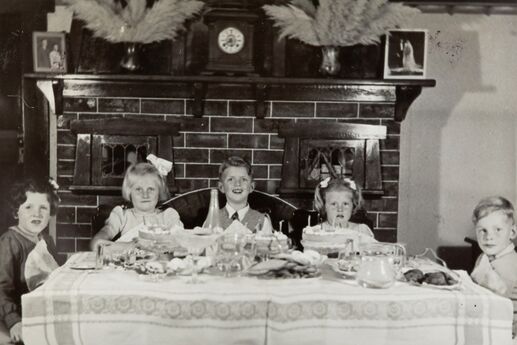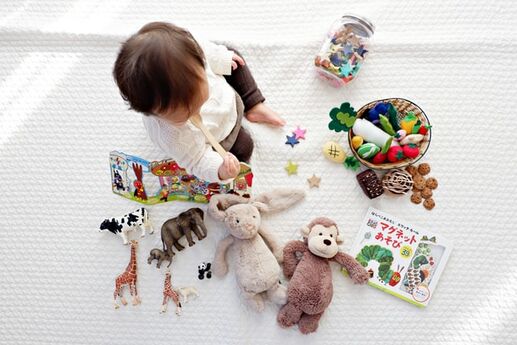Play a Baby Game of Catch
Location: Indoors or outdoors
Promotes: Motor skills
Baby games don’t need to be a bore! You and your 10- to 12-month-old baby will have a blast with this age-appropriate spin on the time-honored tradition of catch. It's a great way to bond, and the motion of simply pushing a ball can boost his motor development as it promotes coordination and strengthens upper body muscles. Get started with these tips.
What you’ll need
Balls of different sizes, colors, and textures that your baby will be able to grab. Any soft or cloth-covered ball will do the trick.
How to play
Gather up some soft balls -- preferably of various shapes and sizes -- and roll one to your baby. Encourage him to roll or throw it back to you, helping him if he needs it. Be sure to talk about the objects and what you’re doing, telling your baby, “You just threw the green ball!” or “I am rolling the spotted ball to you.” Try to add some structure to this baby activity as your child gets older, asking him to roll or throw a specific ball.
Tricks and advice
At this age, your baby’s aim won’t be accurate. He's still working on his hand and finger motions, and will be swatting or slapping the ball at first. Expect that you’ll need to help him with these early motor development skills and that he’ll need lots of practice. The goal of the game is to help your baby gain control and coordination through the repeated actions of grasping, rolling, and throwing the ball.
Learning and growing
The repeated motion of this baby activity encourages your little one to use his body in new and different ways, giving him a sense of power and control. It’s an amazing sense of achievement when a baby realizes, “I made that ball roll!”
As your child grows, it will be fun to see how the game develops into him truly tossing -- and eventually catching -- the ball. And if he ever takes to the field or basketball court as an older kid, you’ll always remember where his ball skills began!







